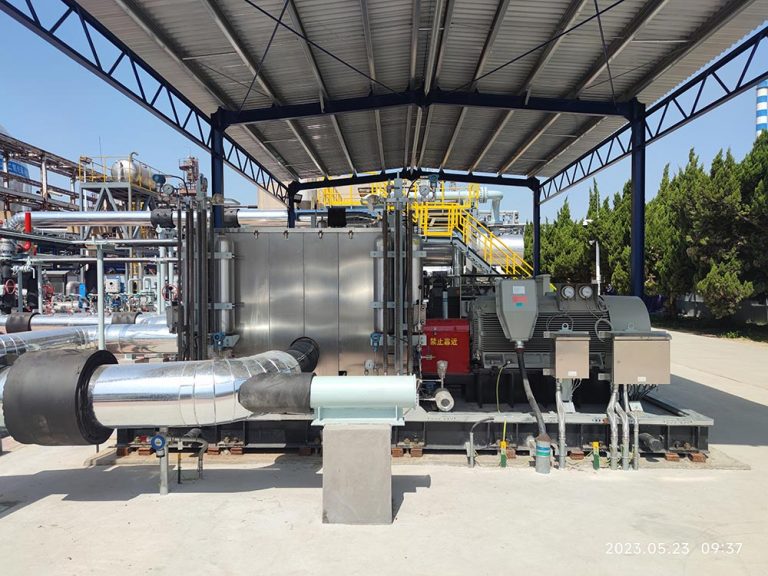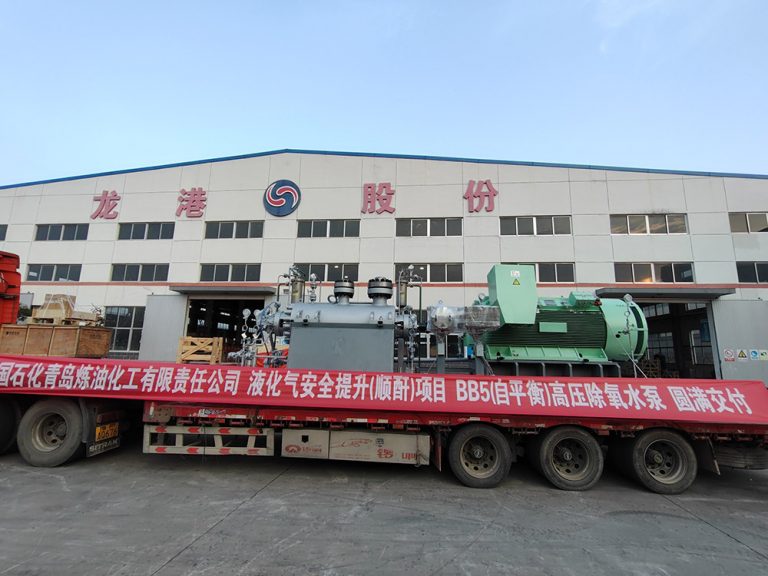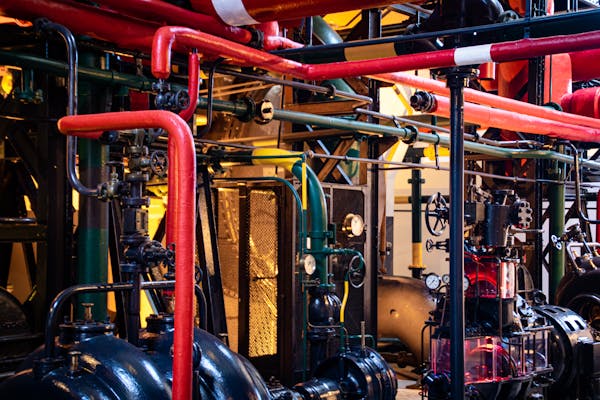The advancement of API pump technologies has revolutionized the fluid handling industry, enabling organizations to enhance production efficiency significantly. These pumps, designed in accordance with American Petroleum Institute (API) standards, cater to various industrial applications, including oil and gas, water treatment, and chemical processing. The evolution of API pumps has been marked by a commitment to innovation and improvements that address the ever-increasing demands for efficiency and sustainability in operations. As industries continue to seek ways to maximize productivity and reduce operational costs, advanced API pump technologies play a crucial role in achieving these objectives.
The Evolution of API Pump Technologies
Historical Development and Milestones
The development of API pumps dates back several decades, with the introduction of standards to ensure equipment reliability and performance within the petroleum sector. The American Petroleum Institute established specifications and guidelines to enhance pump design and manufacturing processes, paving the way for enhanced reliability and reduced maintenance costs. Milestones such as the introduction of corrosion-resistant materials and advancements in seal technology have contributed to the gradual improvements seen in API pump efficiency. These historical developments have allowed for better handling of varying fluids under diverse operating conditions, ultimately driving performance and operational reliability.
Key Innovations and Breakthroughs
Recent years have witnessed promising innovations in API pump technologies. The introduction of data-driven monitoring systems has enhanced operational transparency and predictive maintenance, enabling users to analyze performance metrics and adjust operations for peak efficiency. Moreover, the implementation of advanced materials like composites has significantly increased the durability and chemical resistance of pumps, allowing for longer lifespan and reduced outages. Additionally, the integration of variable frequency drives (VFDs) has emerged as a pivotal advancement in optimizing pump operations, allowing for precise control of flow rates and energy consumption in accordance with real-time demands. The culmination of these breakthroughs has helped organizations to reduce energy costs and improve their service continuity.
The Longgang LDD (BB4) high-pressure segmented multi-stage pump exemplifies a notable advancement in API pump technology. Designed for demanding applications, the LDD pump offers remarkable efficiency and versatility. Its multi-stage design allows for high pressure generation while maintaining a compact footprint suitable for installation in constrained spaces. Engineered with precision and state-of-the-art materials, the LDD pump boasts an extended service life and reduced maintenance needs, leading to significant operational cost savings. Additionally, this pump integrates advanced monitoring capabilities, allowing operators to track performance and ensure optimal efficiency throughout its lifecycle. By leveraging the capabilities of the Longgang LDD (BB4), companies are enabled to enhance their production processes dramatically.
In conclusion, as API pump technologies continue to advance, they play a vital role in maximizing production efficiency across various applications. These innovations not only facilitate the handling of complex fluids but also contribute to sustainability efforts within the industry, ensuring that organizations can meet their operational goals while minimizing their environmental footprint.

Core Benefits of API Pumps in Industrial Applications
Reliability and Longevity
Reliability is a cornerstone benefit of API pumps, which stems from stringent manufacturing standards set by the American Petroleum Institute. These pumps are crafted with durability in mind, utilizing advanced materials that resist corrosion and wear, making them well-suited for a wide range of challenging environments. The inclusion of high-quality seals and robust construction techniques further enhances their reliability, ensuring consistent performance over time. Such reliability minimizes the frequency of unexpected failures and allows for uninterrupted operations, which is vital for industries that operate around the clock.
Reduced Maintenance Requirements
Advanced API pump designs significantly lessen maintenance requirements, a critical factor in operational efficiency. With enhanced materials that withstand harsh operating conditions, these pumps exhibit improved resistance to damage, resulting in fewer breakdowns. Maintenance schedules become less frequent, allowing companies to allocate resources more effectively and reducing the labor costs associated with routine upkeep. This operational advantage not only streamlines processes but also fosters a safer working environment by minimizing the need for personnel to perform potentially hazardous maintenance tasks.
Extended Operational Lifespan
The operational lifespan of API pumps has seen a dramatic increase due to technological advancements in design and materials. A higher quality of engineering combined with materials that resist degradation over time translates to longer-lasting performance. This extension in lifespan means that organizations are not only investing in pumps that require less frequent replacement but are also benefiting from the associated savings on capital expenditure and installation costs over time. Moreover, the implications of a prolonged lifespan contribute positively to environmental sustainability, reducing the waste associated with disposing of outdated equipment.
Energy Efficiency and Cost Savings
Energy consumption is a significant consideration in the operational costs of any industrial application. API pumps have made remarkable strides in energy efficiency, particularly with the adoption of variable frequency drives (VFDs) that enable precise control over pump speed and flow rates. By optimizing energy use according to real-time demands, these pumps help organizations realize substantial cost savings on their energy bills. This not only aligns with corporate sustainability goals but also translates into reinvestable savings that can be utilized in other areas of the business.
The Longgang LDD (BB4) high-pressure segmented multi-stage pump serves as an exemplary model of energy-efficient design within the API pump category. Featuring a compact multi-stage architecture, it excels in producing high pressures without excessive energy consumption. This efficiency makes it ideal for applications where energy costs can be a significant factor. The integration of intelligent monitoring systems further enhances its operational efficiency, allowing for real-time adjustments that optimize performance while conserving energy. By adopting the Longgang LDD (BB4) pump, organizations can leverage significant cost savings, ultimately translating to enhanced profitability.
In summary, the advanced API pump technologies provide core benefits that resonate throughout industrial applications. With their reliability, reduced maintenance requirements, extended operational lifespans, and energy efficiency, these pumps are indispensable assets in maximizing production efficiency and driving organizational success. As industries navigate the intricacies of performance and sustainability, the strategic implementation of API pumps will continue to pave the way for improved operational outcomes.
Case Examples of Improved Operational Efficiency with API Pumps
Chemical Processing Plants
In chemical processing plants, the need for reliable and efficient fluid transfer is paramount. API pumps serve as critical components in these environments, where they handle aggressive chemicals and varying flow rates. For instance, the implementation of high-durability API pumps reduces the frequency of pump failures, thereby minimizing downtime. Additionally, advanced materials utilized in API pump construction enhance resistance to corrosion and chemical wear, resulting in longer operational lifespans. Case studies from several chemical facilities demonstrate that integrating API pumps has led to significant improvements in operational continuity and overall process efficiency. Furthermore, the energy-saving capabilities of such pumps, particularly when coupled with variable frequency drives, bring down electricity costs, maximizing profit margins while maintaining consistent production levels.
Oil and Gas Facilities
The oil and gas industry relies heavily on API pumps due to their robust construction and ability to operate under extreme conditions. In oil extraction and refining processes, the demand for high efficiency and reliability is critical for maintaining production schedules. Facilities that have introduced API pumps report a reduction in maintenance costs due to the enhanced durability and efficiency of these systems. The Longgang LDD (BB4) high-pressure segmented multi-stage pump, for example, has been implemented in numerous oil and gas applications with great success. Its design allows for high pressure generation while simultaneously reducing energy consumption, which results in lower operational costs. Moreover, the integration of smart monitoring systems within these API pumps enables proactive maintenance strategies, further mitigating risks of failure and ensuring consistent production availability. By adopting advanced pump technologies, oil and gas facilities can optimize their operational efficiencies while responding effectively to market demands.
Pharmaceutical Manufacturing Units
In the pharmaceutical industry, precision and reliability in fluid handling are crucial for maintaining product integrity and compliance with regulatory standards. The use of API pumps in this sector has been transformative, particularly in processes that require the handling of volatile materials and sterile environments. The design and engineering of API pumps, particularly those compliant with industry standards, help ensure that the integrity of the product is maintained throughout production. Firms that have adopted high-performance API pumps, such as the Longgang LDD (BB4), highlight benefits in terms of process consistency and reduced contamination risks. Implementing advanced monitoring features has also allowed pharmaceutical manufacturers to adjust flow rates dynamically, ensuring optimal performance under varying production demands. This level of adaptability not only enhances production uptime but also contributes to significant cost savings, demonstrating the profound impact that API pump technologies have on operational efficiency in pharmaceutical manufacturing.
Through the case examples presented, it is evident that API pumps provide substantial improvements in operational efficiency across various sectors. Their reliability, reduced maintenance needs, and energy-saving features are critical factors that drive productivity and profitability in chemical processing, oil and gas, and pharmaceutical manufacturing industries.








